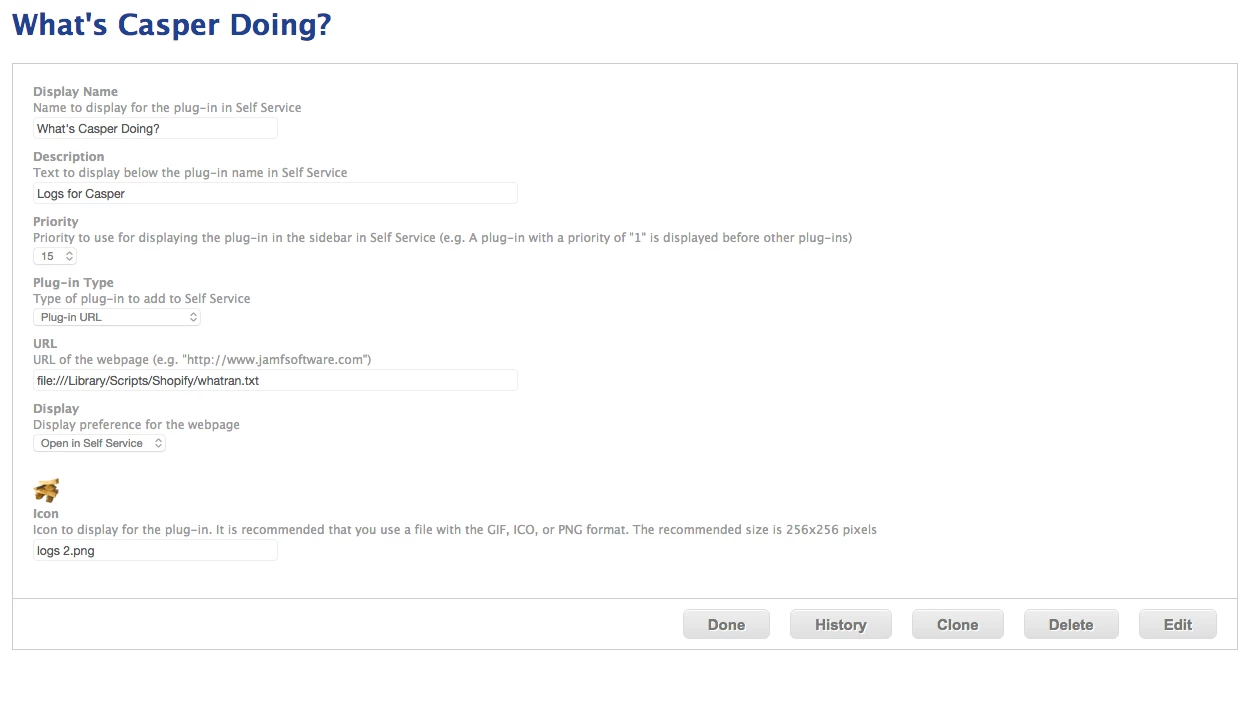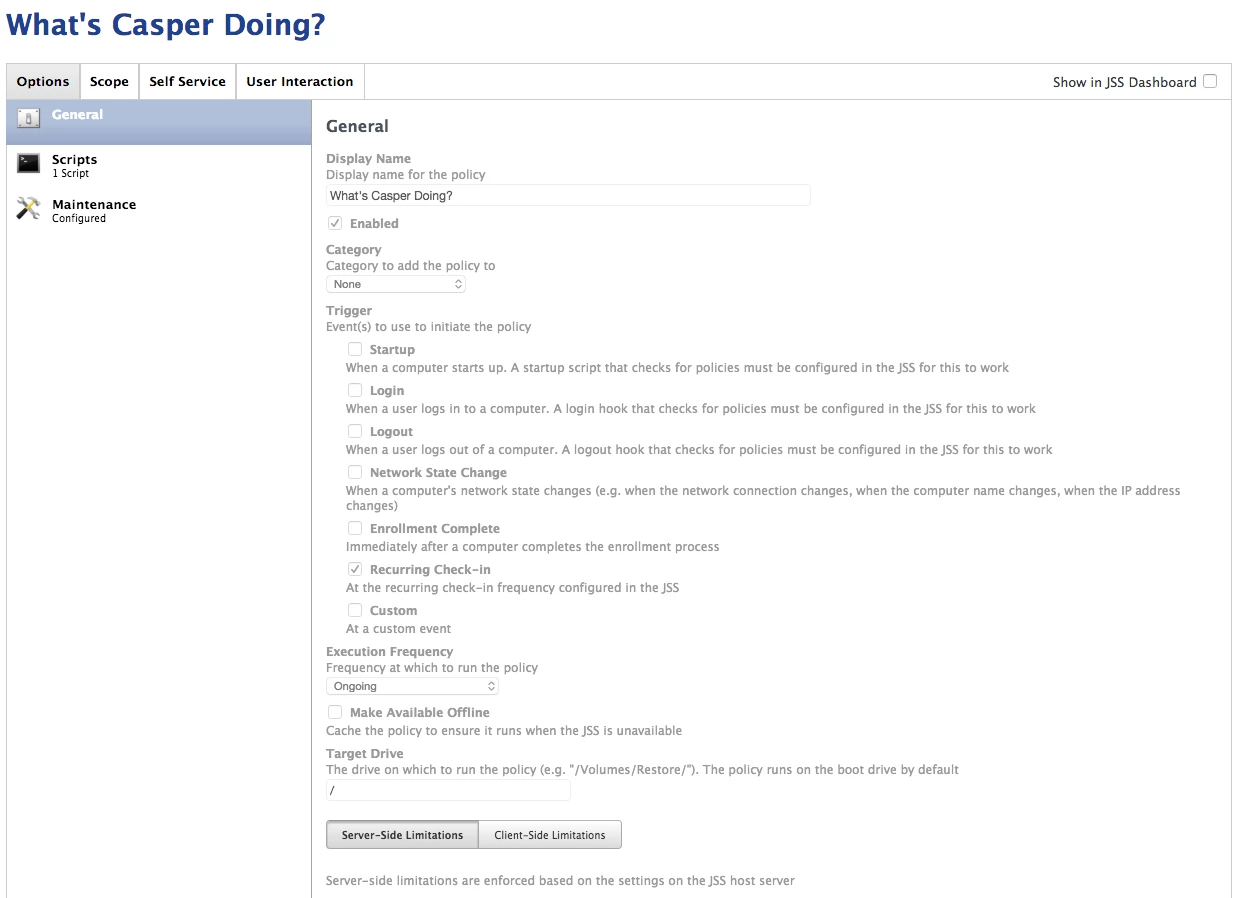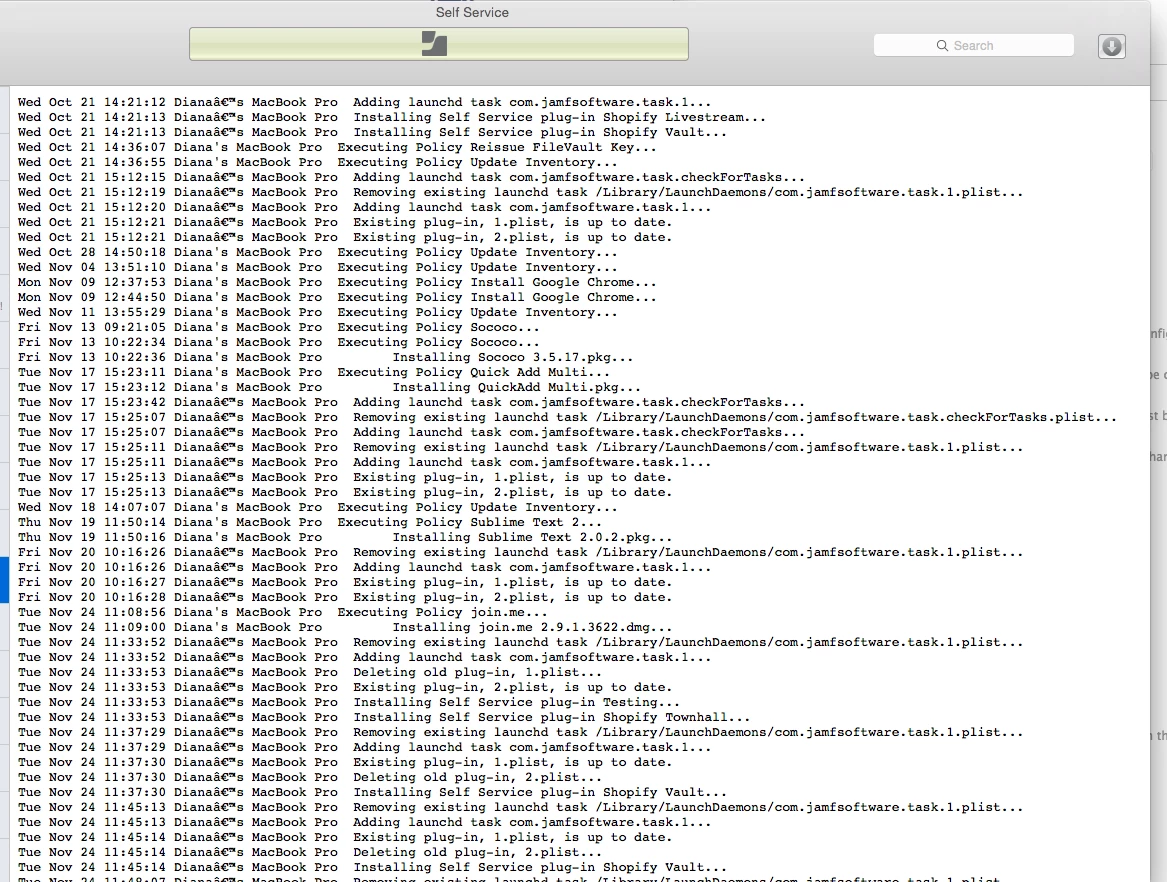I wanted to make a plugin where our users can see what type of things Casper is doing (our culture makes it difficult for people to accept Casper) . I made this script here:
!/bin/bash
mkdir /Library/Scripts/Shopify
more /var/log/jamf.log | grep "Executing|Installing|Updating|Adding|Existing|Removing|Deleting" | sed s/jamf[[0-9]*]://g 2>&1 > /Library/Scripts/Shopify/Whatran.txt
Made the plugin:

And then made a policy to run the script ongoing to update the file. Unfortunately the next time it runs the policy the txt is up to date but my self service plugin shows a blank page.

Oddly though, when I run a sudo jamf policy in terminal the log show up fine in my self service plugin. All this command is doing is running that ongoing policy... so I don't understand why it wouldn't just work without this.

Thoughts?



